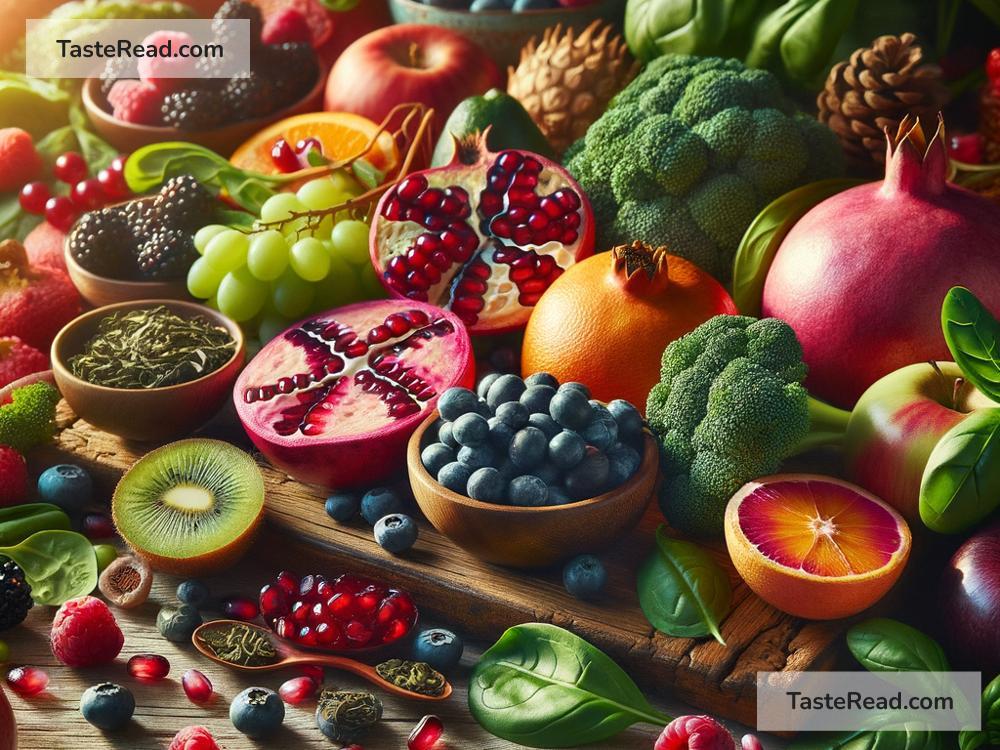Understanding the Role of Polyphenols in Health
When it comes to staying healthy, eating the right foods plays a big role. One reason fruits, vegetables, whole grains, and other plant-based foods are so good for us is because they are packed with natural chemicals called polyphenols. You may not have heard much about polyphenols, but they are powerful compounds that can boost your health in many ways. Let’s dive into what they are, why they matter, and how you can include them in your diet.
What Are Polyphenols?
Polyphenols are natural compounds found in plants. These compounds help protect plants from damage caused by ultraviolet light, pests, and diseases—and they offer similar protective benefits to humans when we eat plant-based foods. Polyphenols are responsible for many of the colors, flavors, and aromas in foods like fruits, vegetables, tea, coffee, and herbs.
There are over 8,000 types of polyphenols, but they can be grouped into four major categories:
1. Flavonoids: Found in tea, berries, and citrus fruits.
2. Phenolic acids: Found in coffee, whole grains, and seeds.
3. Stilbenes: Found in red wine and peanuts.
4. Lignans: Found in flaxseeds, sesame seeds, and whole grains.
While these names might sound complicated, the important thing to know is that polyphenols are like tiny helpers inside your body, fighting off harmful processes.
Why Are Polyphenols Good for Your Health?
Polyphenols act as antioxidants, which means they help protect your cells from damage caused by free radicals. Free radicals are unstable molecules that can build up in your body over time and contribute to aging, inflammation, and diseases like cancer, diabetes, and heart disease. Antioxidants, like polyphenols, keep these free radicals in check and reduce the risk of chronic illnesses.
Here are some key ways polyphenols help improve health:
-
Boost Heart Health
Polyphenols can improve blood circulation, lower blood pressure, and reduce cholesterol levels. Flavonoids, in particular, found in foods like dark chocolate and green tea, have been linked to a lower risk of heart disease. -
Support Brain Function
Some studies have shown that certain polyphenols can help improve memory and cognitive function. For example, the polyphenols in berries and wine may protect brain cells from aging and lower your risk of Alzheimer’s disease. -
Help Manage Blood Sugar
Polyphenols can also help regulate blood sugar levels, making them a useful nutrient for people with diabetes or those at risk for the condition. Foods like cinnamon, apples, and green tea contain polyphenols that can improve insulin sensitivity. -
Fight Inflammation
Inflammation is your body’s way of responding to injury or infection, but when it becomes chronic, it can lead to diseases like arthritis, obesity, or cancer. Polyphenols like those found in turmeric and green tea have anti-inflammatory properties that can calm the body and reduce inflammation. -
Protect Against Cancer
While there’s no magic food that can completely protect you from cancer, polyphenols play a role in reducing cancer risk. They help prevent oxidative damage to cells and may interfere with cancer cell growth. For instance, the polyphenols in grapes, green tea, and cruciferous vegetables like broccoli have shown promise in cancer research.
How to Get Polyphenols from Food
Getting the benefits of polyphenols is easy—just eat a variety of plant-based foods! Foods rich in polyphenols include:
- Fruits: Apples, berries, grapes, oranges, and cherries.
- Vegetables: Onions, spinach, broccoli, and kale.
- Herbs and Spices: Turmeric, cinnamon, oregano, and peppermint.
- Beverages: Green tea, black tea, coffee, and red wine.
- Other Foods: Dark chocolate, nuts, seeds, and olive oil.
Processed foods often lose their polyphenols during manufacturing, so it’s better to choose fresh, whole foods whenever possible. For example, eating an apple with the skin provides more polyphenols than drinking apple juice.
Tips for Adding Polyphenols to Your Diet
- Start your day with green or black tea instead of sugary drinks.
- Snack on berries or nuts rather than chips or candy.
- Use herbs like cinnamon, turmeric, and oregano to season your meals.
- Include colorful vegetables in every meal—more color usually means more polyphenols!
- Have a square or two of dark chocolate (at least 70% cocoa) for dessert.
- If you drink alcohol, enjoy a moderate amount of red wine.
Are There Any Risks?
For most people, eating foods rich in polyphenols is perfectly safe and healthy. However, taking polyphenol supplements might not offer the same benefits—or could even have side effects—since they may contain overly concentrated doses. Always focus on getting polyphenols through food first, and consult a doctor before taking supplements.
The Bottom Line
Polyphenols are amazing compounds that come from nature and work hard to keep you healthy. By acting as antioxidants and reducing inflammation, they support your heart, brain, and overall well-being. The best way to add polyphenols to your diet is to eat a variety of plant-based foods every day.
Whether you sip green tea in the morning, sprinkle cinnamon on oatmeal, or snack on blueberries, polyphenols are there to help your body thrive. Next time you see a colorful bowl of fruits and veggies, remember—it’s not just delicious; it’s packed with health-boosting polyphenols!


